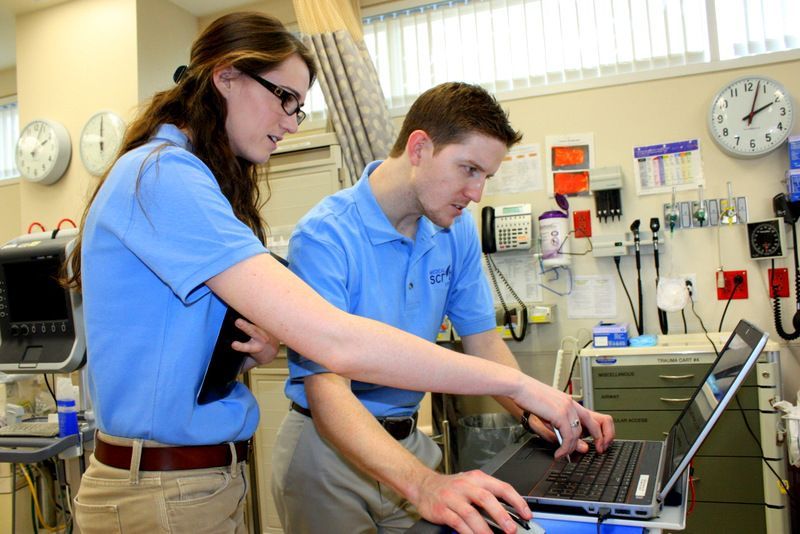Medical scribes are going to be in high demand in the next few years. As the new healthcare changes going to effect, doctors will be under more pressure to reduce costs. They will need highly trained scribes to reduce their error rates and streamline the process. Salaries for medical scribes vary significantly by region and employer. In some communities, the average medical scribe earns nearly $16 an hour. In other facilities, they only earned about nine dollars an hour. While the pay may not be exceptional, medical scribes can advance into other healthcare professionals. They can also enjoy high job security, because demand for their work is high and few people have received the right training. If you are interested in becoming a medical scribe, you will need to start by participating in a medical scribe training program. Here is an overview of the process.
What to expect with a medical scribe training program
There are different types of training programs that medical scribes may participate in. Some are conducted remotely via online training platforms. Others are held in actual medical facilities under the supervision of a licensed scribe. Before you can participate in a medical scribe training program, you must meet the following qualifications:
- Every state requires medical scribes to have at least a high school diploma or GED. In some states, you may be required to have a college degree. Employers generally prefer medical scribes with college graduates, but it isn’t required to be licensed or participate in training.
- You must be proficient with computers and have a decent typing rate. One medical scribe trainer that I spoke with states that they generally prefer people to be able to take at least 50 words a minute. Today, many scribes transcribe a lot of audio notes. However, typing is still an important skill set.
- You will have an upper hand if you understand basic medical terminology.
If you meet these requirements, you can join a medical scribe training program. These programs have three stages:
- An orientation that lasts two weeks, which aims to help the scribe prepare for their first day working under the guidance of a licensed physician.
- A probationary period where the new scribe works under the supervision of a more experienced coworker. They will receive feedback on their work.
- After passing the probationary period, the scribe will need to be reviewed regularly for their efficiency, professionalism and error rate. He will also undergo regular training to ensure they can deliver the fastest and highest quality service.
One medical scribe said that the process is usually pretty straightforward, but can be invaluable later on. ?You don?t have to commit to being a medical scribe for the rest of your life. The hours that you earn in your training program will count towards a Physician Assistant (P.A.) license. Many medical scribes advance up the ranks. Even if they go into another career, they have their medical scribe training to fall back on during hard economic times,? this scribe explained. Dr. Michael Murphy, a medical doctor and a CEO of ScribeAmerica concurs with this assessment. “A background in Medical Scribing is quickly becoming the standard for pre-medical experience, and is suggested by medical school acceptance committees across the country. The competition to become a Medical Scribe is intense, and the demand for Medical Scribe services across the country has never been higher? [But] It is not for everyone. This job takes dedication and your ability to learn a abundant amount of information in a short period of time.? A lot of material is covered in medical scribe training programs. They cover details on medical terminology, which is very useful in other medical careers later. One medical scribe went to school to become a dietitian and learned about the benefits of Manuka Honey. She was surprised that she had an advantage in her new training program, because she learned similar nutritional terms while working as a medical scribe in Cleveland.
Is a Scribe Training Program Difficult?
Becoming a medical scribe isn?t easy, but it isn?t overwhelmingly difficult either. If you have completed college coursework, you will find that the material will be less complex. The hardest part will be mastering the different terminology and learning to take notes quickly. You will have an easier time completing the program if you learn common medical terminology ahead of time. The material will be pretty easy afterwards and you will earn better marks during your supervisory period. Are you interested in becoming a medical scribe? You shouldn?t have trouble finding a great scribe training program in your area.






